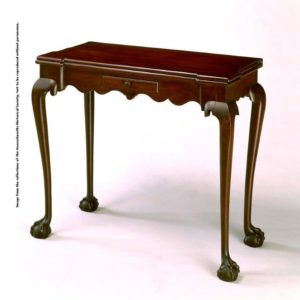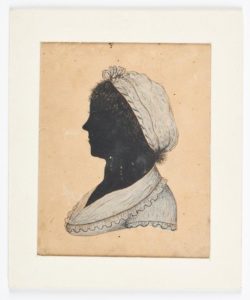She was named for the ship that stole her away. At seven years old, Phillis Wheatley crossed the Atlantic from West Africa, another dot in the mosaic of roughly six million enslaved Africans who landed in the Americas between 1700 and 1808. Small and so young, she became Boston merchant John Wheatley’s gift to wife Susannah. Early on, Phillis’ talent shone. She mastered Latin and Greek, earning transatlantic praise for her Poems on Various Subjects, Religious and Moral, the first book of poetry by an African-American, published in London in 1773. She sat for an author portrait, toured England, met George Washington, and, finally, secured her freedom before dying, impoverished, in 1784.
Early Americans and early Americanists have pored over her too-brief career ever since. Phillis Wheatley’s byline alone, threading together her sacrifice and her sale, bears hard history in it. As an African-American founding mother of our national literary tradition, Wheatley owns a leading role in survey classes, public statues, and cultural memory. Wheatley’s last manuscript, 300 pages of poetry, may be lost; but we hold pieces of her legacy intact. Here at the Massachusetts Historical Society, I pass by her writing desk nearly every day. It’s not the one in her formal portrait. Rather, it’s the mahogany “card or tea table” that John Wheatley gifted Phillis with sometime during her long servitude. Ball-and-claw feet grip the carpet. A neat apron-front drawer has room enough for cards, ink, and a few cottony sheets of colonial paper. Sold at auction to settle her heavy debts, the poet’s desk is a rich artifact of literary technology, an Enlightenment-era laptop. Polished and bare, Phillis Wheatley’s desk raises the question: Who took up her pen?
Today, resuming my series on early American women intellectuals, I’ll focus on Ann Plato, a Hartford, Conn., schoolteacher who was, in many ways, Wheatley’s direct heir. Or so argued the abolitionist preacher James W.C. Pennington in his opening attestation of Plato’s 1841 Essays; Including Biographies and Miscellaneous Pieces, in Prose and Poetry. Pennington, then deep at work on his own book, The Origin and History of the Colored People (1841), made a compelling case for Plato’s historical significance. Of African-American and Native American ancestry, Plato (fl. 1824-1870), had, according to Pennington, suffered in order to persevere as a literary artist. By his lights, Ann Plato therefore joined the ranks of Wheatley, the Roman playwright Terence, and the Jamaican poet Francis Williams. “These all served in adversity,” Pennington reminded readers, “and afterwards found that nature had no objection, at least to their serving the world in high repute as poets… But as Greece had a Plato why may we not have a Platoess?”
For researchers, the long-forgotten, local “Platoess” has proved near-mythic to examine. A great deal of excellent biographical spadework has been done by Ron Welburn, in Hartford’s Ann Plato and the Native Borders of Identity (Albany: SUNY Press, 2015). Ann Plato presents a critical dilemma for scholars, as Welburn points out, since she “left neither entry nor exit signs,” opting to blur her contributions within the historical record. Tracing Plato’s education from eastern Long Island to her Connecticut teaching career, Welburn weaves in the intellectual “places in between,” where Ann Plato also thrived: praying at the Talcott Street (Colored) Congregational Church, publishing poetry in The Colored American newspaper, and––like so many other Americans––possibly wending her way West, to Iowa, in the Reconstruction era. To deal with Plato on any critical level is tough. Though she produced several shorter (and often near/anonymous) pieces, Ann Plato’s legacy rises or falls on her single volume, Essays. Between her conduct book’s rote lines lies a wealth of African-Americans’ sense of experience, education, history. A pastiche of prose parables, morality tales, advice for youths, and poetry humming with political and religious commentary: Ann Plato’s book is at home in the early republic.
 Plato’s Essays split along three paths, marked out “Prose,” “Biographies,” and “Poetry.” To read Plato is to sink fully into the antebellum schoolroom. The first section instructs the reader via “lessons from nature,” outlining the Christian principles of education, diligence, and obedience needed to frame a good character. Youth remains the best “season” to cultivate ideal habits. Plato’s voice steers the narrative; she is quiet but firm. In one essay, she frets that her female pupils will favor making a “showy appearance” more than “prizing the gift” of entrance into the “temple of knowledge.” In another piece, she urges students to excel, since “mediocrity is a proof of weakness; and perfection may always be purchased by application.” Like her literary peers, Ann Plato keeps her “Prose” primly aspirational with “Eminence from Obscurity,” a listicle of “great” European men who have “risen from humble stations” and laboring lives to become artists and scholars.
Plato’s Essays split along three paths, marked out “Prose,” “Biographies,” and “Poetry.” To read Plato is to sink fully into the antebellum schoolroom. The first section instructs the reader via “lessons from nature,” outlining the Christian principles of education, diligence, and obedience needed to frame a good character. Youth remains the best “season” to cultivate ideal habits. Plato’s voice steers the narrative; she is quiet but firm. In one essay, she frets that her female pupils will favor making a “showy appearance” more than “prizing the gift” of entrance into the “temple of knowledge.” In another piece, she urges students to excel, since “mediocrity is a proof of weakness; and perfection may always be purchased by application.” Like her literary peers, Ann Plato keeps her “Prose” primly aspirational with “Eminence from Obscurity,” a listicle of “great” European men who have “risen from humble stations” and laboring lives to become artists and scholars.
Plato wraps up “Prose” with a trinity of tragic reflections. “Life is Short” documents the first moments of new orphans, in freefall after a family funeral. “Death of the Christian,” a shorter and more ambitious work, namechecks a set of classical and modern references (Caesar, Pollok, Byron
, Chesterfield, Addison). There, Plato reels in cultured readers with her impressive grasp of Anglo-American literature. Then she steps back, sealing her conclusion with an appeal to godly virtue. “Learn with what superior dignity of mind a Christian can die,” Plato writes. Certainly, Pennington’s “authoress” knew her audience, for Plato folds lost friends into her saga. The second part, “Biographies,” features short eulogies of four women, all local acquaintances who died young (likely of consumption). Using their lives to reinforce cherished notions of Christian morality and youthful piety, Plato attempts women’s biography with sentimental verve. Industrious, mild, and ever sweetened by death’s approach, Plato’s subjects melt and sway into one another’s path. Plato is more interested in presenting a template than a person, putting her work in line with the religious tracts, advice books, and “manners” novels that fellow New Englanders enjoyed. Then, in the space of a few stanzas, Plato turns inward, and against the crowd.
Ann Plato is best known for her poem, “The Natives of America,” an eloquent reflection on her biracial identity, which features prominently in her Essays’ final pages. Go ahead, read it. Plato opens in a familiar, Longfellow-esque tone, with a child begging for a story from her father’s lap. But the narrative she learns is one of conquest and loss. Here is a key sample: “Wars ensued. They knew the handling of firearms. / Mothers spoke,––no fear this breast alarms, / They will not cruelly us oppress, / Or thus our lands possess. / Alas it was a cruel day; we were crush’d: / Into the dark woods we rush’d / To seek a refuge. / My daughter, we are now diminish’d, unknown, / Unfelt! Alas! no tender tone / To cheer us when the hunt is done; / Fathers sleep––we’re silent every one.” If Plato’s individual eulogies run drab, embroidered with obligatory accents of Christian piety, her reconstruction of the Native American experience is raw, powerful, and worth your read.
Part of why I began this project was to read more early American thinkers who sensed their histories, like Phillis Wheatley’s or Ann Plato’s, were diminished, unfelt, unknown. Reading Ann Plato’s republic is a way to understand the kind of historical figure extolled by Anna Julia Cooper in A Voice From the South (1892), the “open-eyed but hitherto voiceless Black Woman of America.” It’s also a route to retrace how early American women wrote about themselves en route to Seneca Falls, through the Civil War, beyond the cultural upheavals of Reconstruction, and into a modern realm of world literature that Phillis Wheatley glimpsed, far too briefly. For, as “A Lady from Philadelphia,” asked in an 1885 issue of Lippincott’s Monthly Magazine: “Why should not the coming novelist be a woman as well as an African? She––the woman of that race––has some claims on Fate which are not yet paid up.”


7 Thoughts on this Post
S-USIH Comment Policy
We ask that those who participate in the discussions generated in the Comments section do so with the same decorum as they would in any other academic setting or context. Since the USIH bloggers write under our real names, we would prefer that our commenters also identify themselves by their real name. As our primary goal is to stimulate and engage in fruitful and productive discussion, ad hominem attacks (personal or professional), unnecessary insults, and/or mean-spiritedness have no place in the USIH Blog’s Comments section. Therefore, we reserve the right to remove any comments that contain any of the above and/or are not intended to further the discussion of the topic of the post. We welcome suggestions for corrections to any of our posts. As the official blog of the Society of US Intellectual History, we hope to foster a diverse community of scholars and readers who engage with one another in discussions of US intellectual history, broadly understood.
Sara, this is absolutely marvelous. What a gorgeous essay, and what a fantastic project.
Thanks so much for writing this. I am ashamed to say I’ve never heard of Anne Plato before, but your project makes me hungry to learn more.
Thanks, L.D. and Robert, for your kind words. Really enjoying this project, and building an ad hoc early American women’s history gallery here. Many more to come, and all suggestions welcome.
Incredible essay & impeccable research. Thank you for sharing this with us Sara!
Thanks, that’s very encouraging to read. More to come…
Dear Sara, what an excellent article! I’m going to share it with my readers too
Thanks, Amy! Greatly appreciated, and glad to see Ann Plato getting some long-deserved attention.